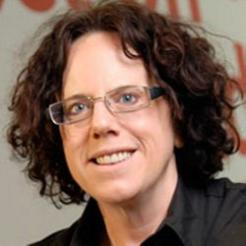Large charities bidding “for someone else’s work” is wiping out the women’s sector, the chief executive of Women’s Aid, Polly Neate said yesterday.
Speaking at an Acevo chief executive women’s summit yesterday, Neate said the sector needed to address the problem that local authority contracts were being awarded to larger charities offering cheaper but fewer services than existing grass root organisations.
“It’s really easy for large charities to come in and take a contract because it is the acceptable face of the charity sector, compared with a woman who is an abuse survivor and who has built up services since the 1980s,” she said.
“The business reasons for a large charity expanding feel very compelling. When you’re in a national organization that feels really, really important. But I think there is an element of delusion that what they provide is the same for the beneficiaries.
“Actually I would say in my experience it’s not the same for the beneficiary. It really, genuinely is not.”
Neate said the growth ambitions of large charities was an “uncomfortable topic” for the sector in general.
“Why is it that we have allowed ourselves to get into a situation where bidding competitively for someone else’s existing work is completely unquestioned?” she said.
“It’s not only about the women’s sector – it’s about what that means for the reputation of the charity sector as a whole. People donate and give money and want to trust. But increasingly they don’t because it feels like a big business, partly because of that sort of behavior,” she said.
'Ill-prepared for competitive tendering'
Neate said a charity sector that was more “at ease with the different types of organisations that are part of it”, would provide a greater benefit for all involved.
Local authority commissioners with little experience of the women’s sector are part of the problem, according to Neate. In particular commissioners diverting funds from small women's refuges to large housing associations "running a sort of homeless hostel with no services" were creating a "cheap" but ineffective solution for beneficiaries.
“Since I’ve come into the women’s sector, I’ve been quite shocked by how ill-prepared the sector is for the world of competitive tendering,” she said.
“You’ve got a real cultural problem for these organisations in engaging with competitive tendering.
“Some of these organisations are absolutely minute and often there are several of them in the same area. So take a bunch of women who have set up a refuge over here, and there’s a bunch of women who have set up a refuge 10 miles away. And they have worked really collaboratively but suddenly they are told there is going to be one contract for both refuges and they have to compete for it.
“They are completely traumatised by it because these are women who have fought for these services together a part of a movement. Loads of charities that started like that and it’s really important that we remember that. Otherwise we are going to lose it full stop," Neate said.
‘Be a pissed off feminist’
Labour MP Stella Creasy spoke of the disparity between the number of women working for charities and the numbers of women in charity leadership positions.
“The vast majority of people who work in the voluntary sector are female but the leadership is not - and the bigger the charities, the less likely they are to be run by women,” she said.
Creasy said women in the voluntary sector faced a pay gap of “about 16 per cent” – a disparity that was also reflected by gender gaps on charity boards.
“If we think we are making progress in this country, we need to think again,” she said.
“This isn’t just about getting a few more women into leader ship positions, it’s about getting many more,” she said. “Be a sister and be a pissed off sister – and men too – because I promise you equality really is better for everyone.”









